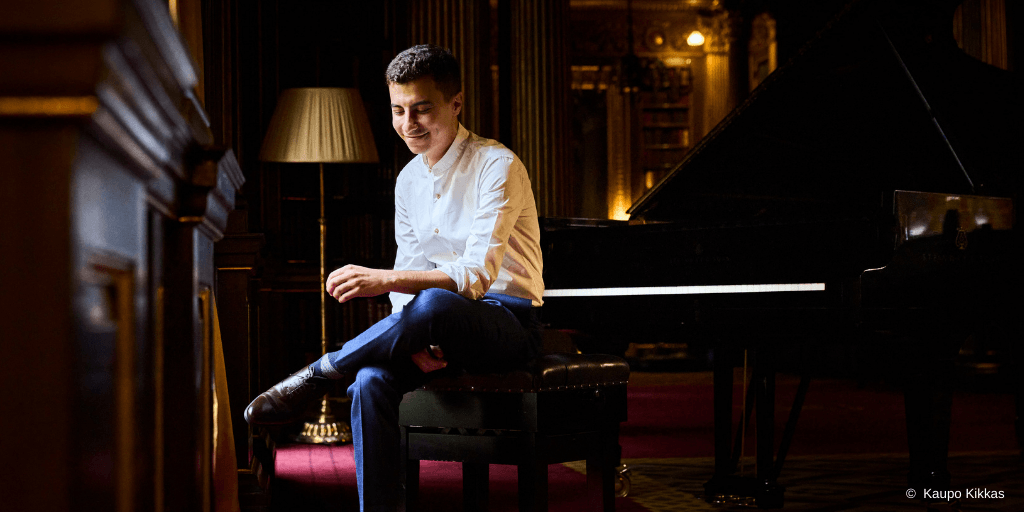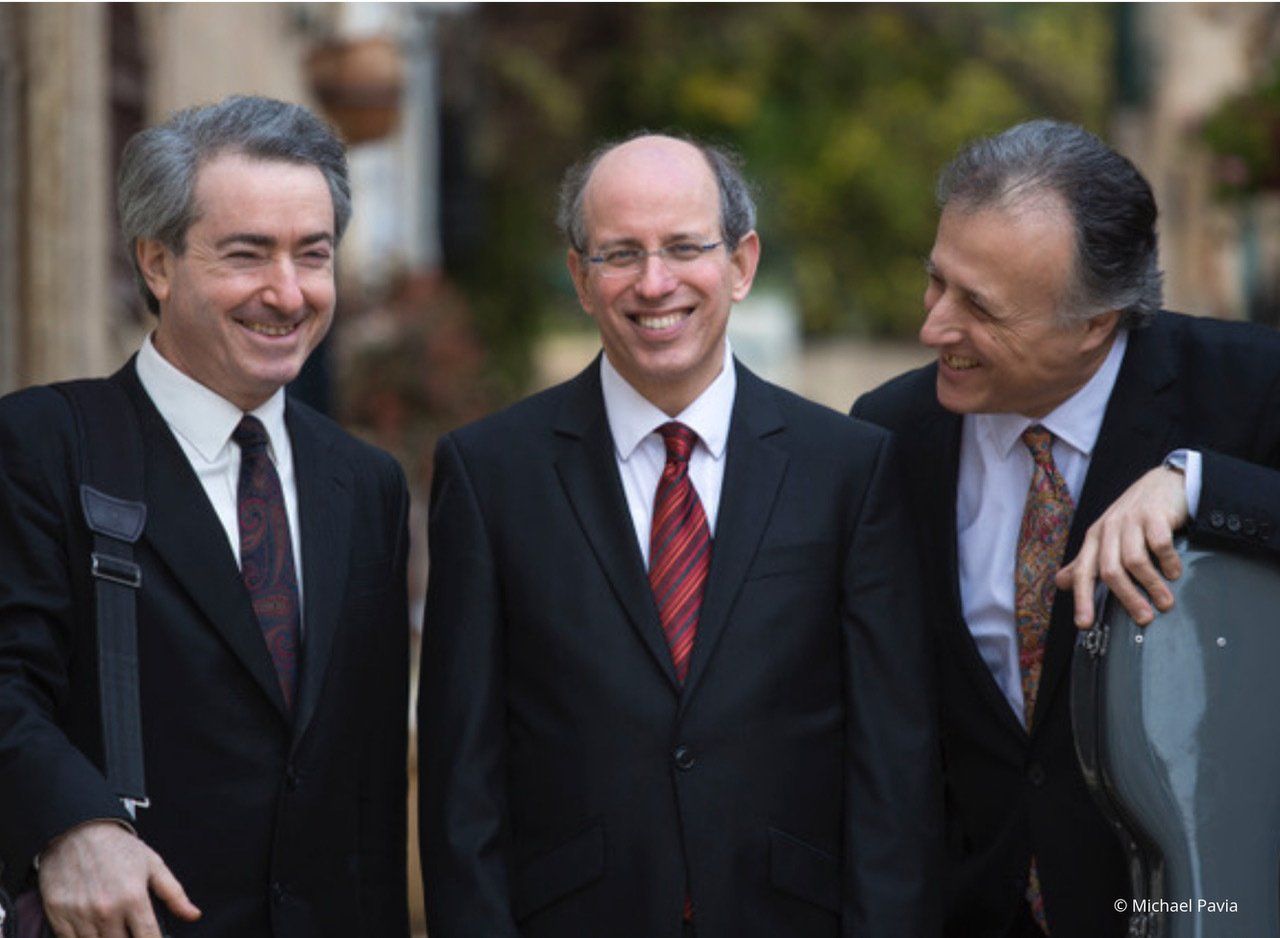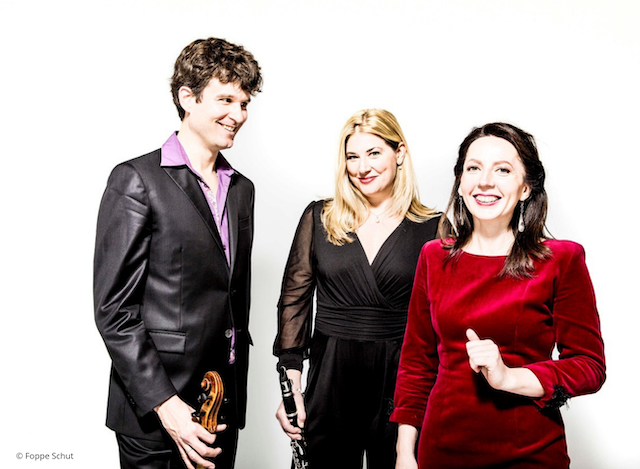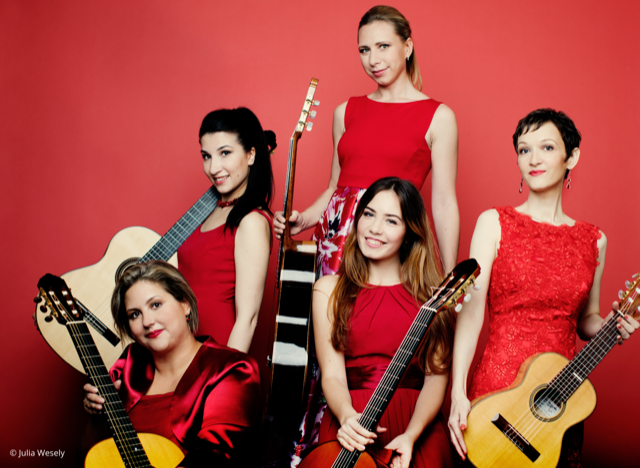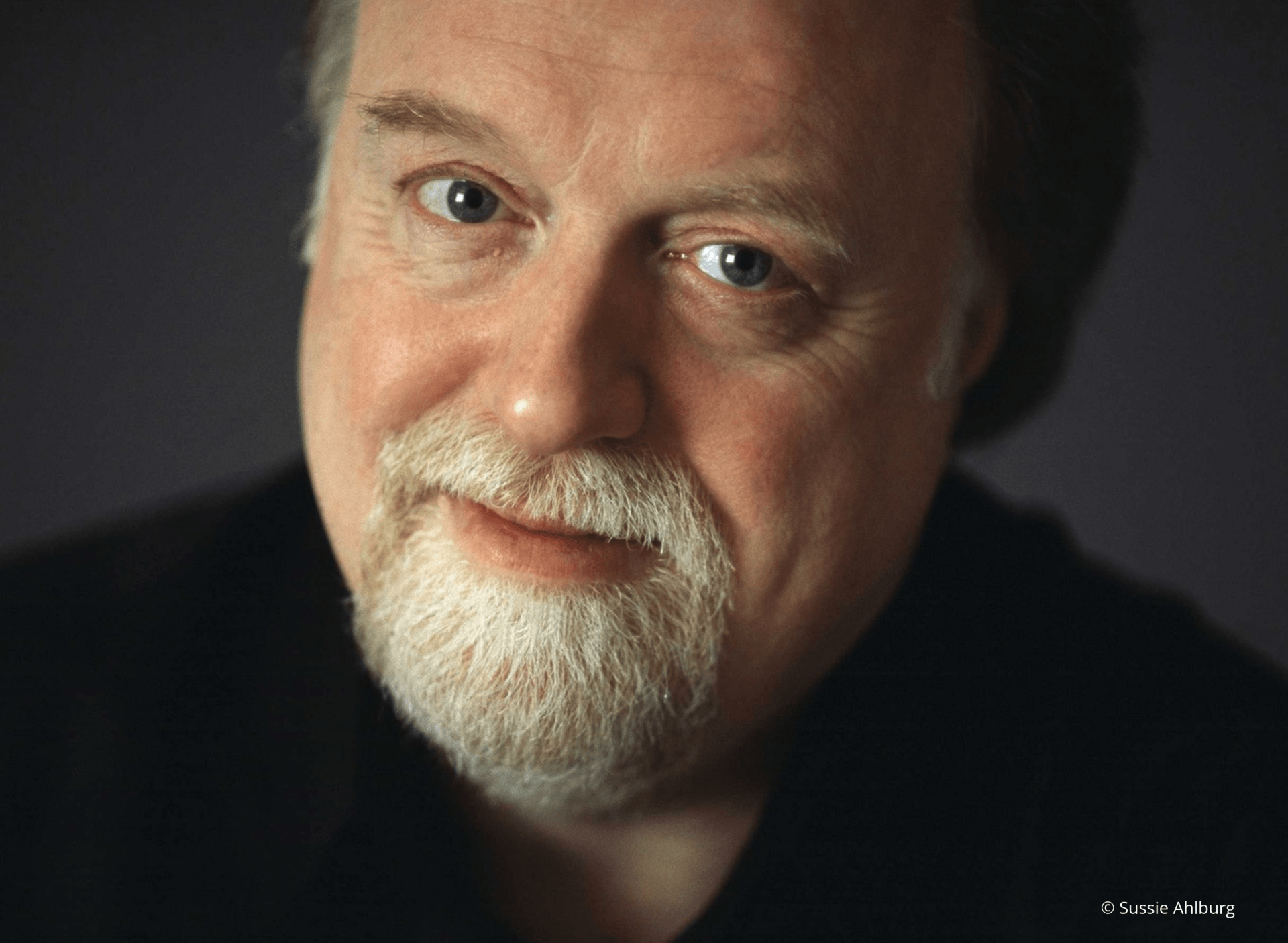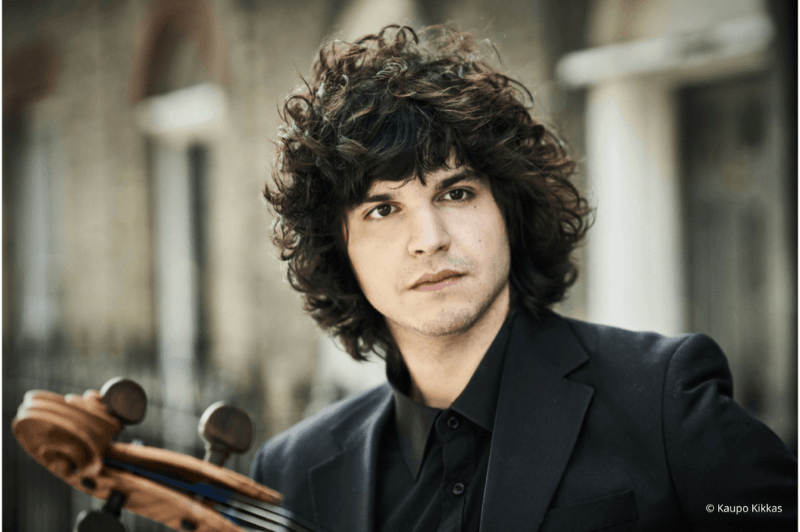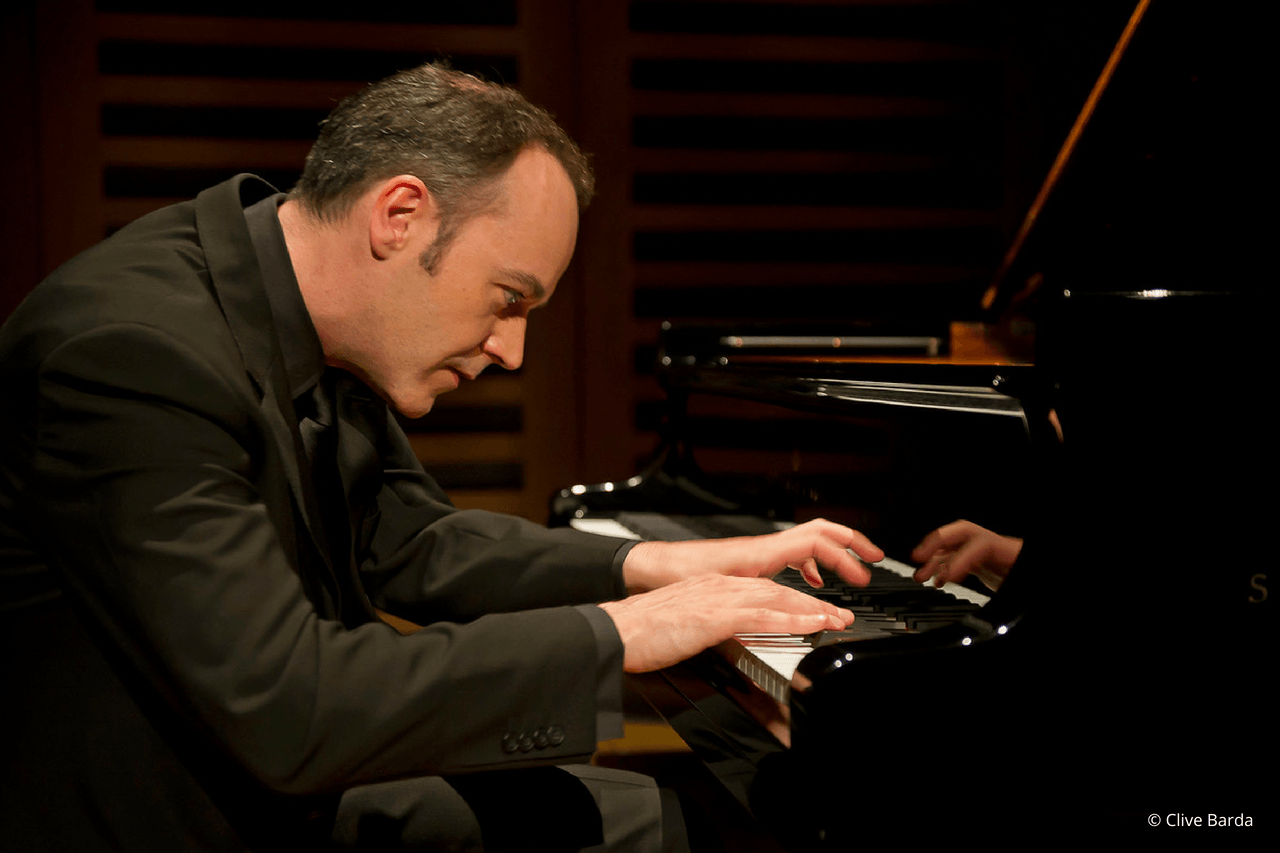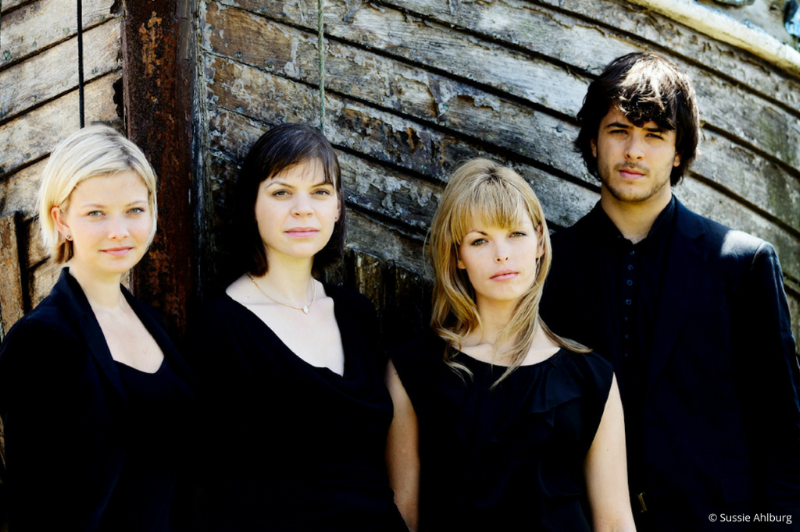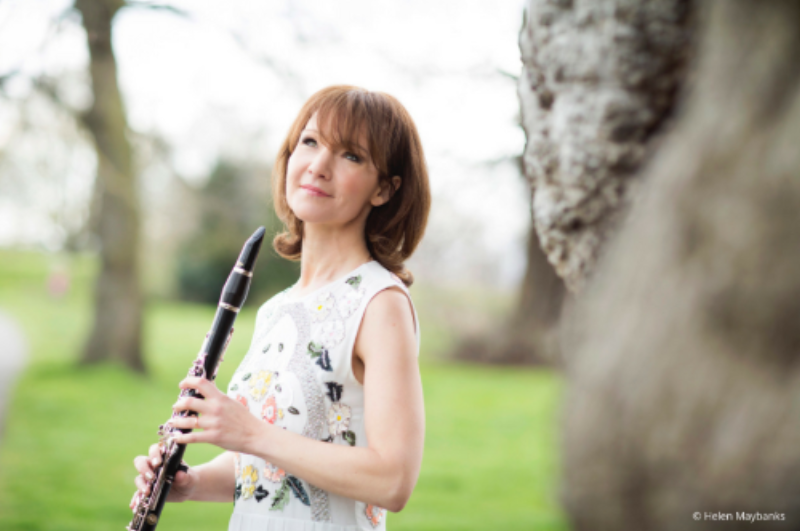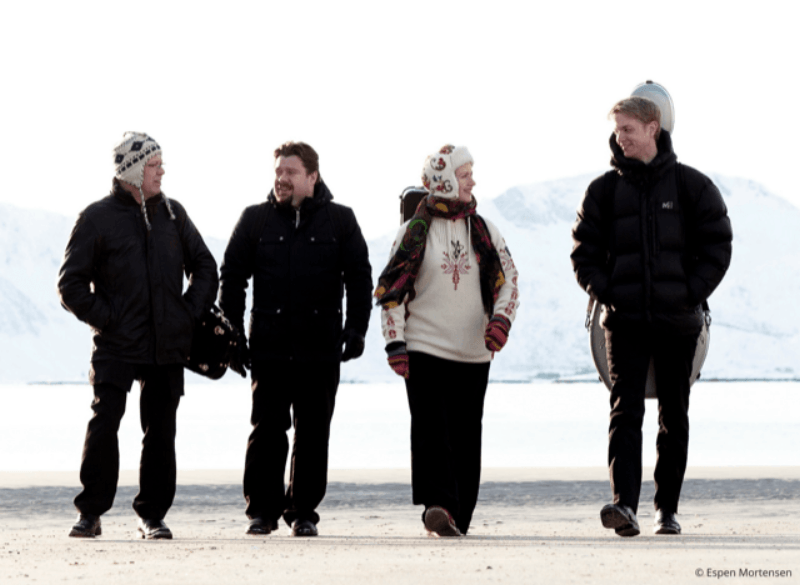Sacconi Quartet playing Haydn, Grime, Rachmaninov & Beethoven
Thursday 21st November 2019 at 7.30pm
The Sacconi Quartet has now been playing in its original line up for nearly two decades! The quartet is named after a twentieth century violin maker and restorer, Simone Fernando Sacconi and three of the musicians play original Sacconi instruments. The Sacconi Festival in Folkestone is now in its twelfth year and the ensemble is Quartet in Association at the Royal College of Music.
'...their fine balance and near flawless ensemble' The Guardian
Find out more about the Sacconi Quartet and watch a video here.
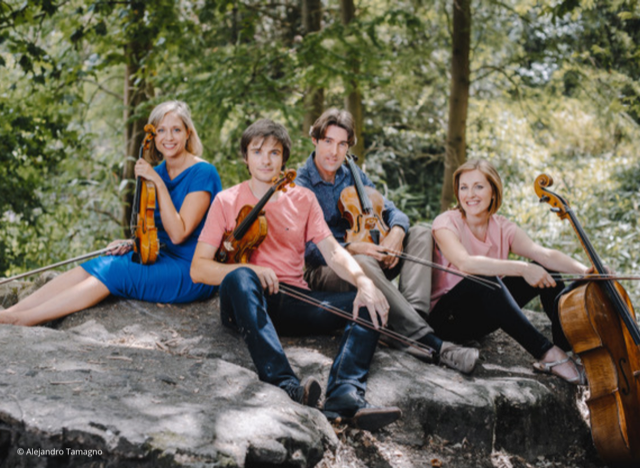
Find out more about the programme for our concert:
Quartet No. 53 in D major Op. 64, No. 5 ‘The Lark’ Josef Haydn 1732-1809
i. Allegro moderato; ii. Adagio cantabile; iii. Menuetto; iv Finale (composed 1790)
Haydn was Austrian and one of the most prolific and prominent composers of the Classical period. He wrote 107 symphonies, 83 string quartets, 45 piano trios, 62 piano sonatas, 14 masses and 26 operas, amongst much else. He was the son of a wheelwright and a local landowner's cook. Haydn spent much of his career as a court musician for the wealthy Esterhazy family at their remote estate. This isolated him from other composers and trends in music, so he was, as he put it, ‘forced to become original’. In 1790 Haydn moved to Vienna and accepted an invitation from the great German violinist, Salomon, to visit London, where he was adored. Haydn spent several years there composing his “London” symphonies.
The nickname, “The Lark” comes from the first movement, as the trills and soaring melody of the violin’s first theme have been likened to the sound and motion of the bird. The first movement begins with the “Lark” melody over a simple accompaniment in the three lower instruments. The development includes a striking run in octaves in the minor mode, foreshadowing the final movement’s perpetual motion. The sweet Adagio cantabile is operatic, an emotive aria over a simple accompaniment, while the light hearted Minuet contrasts with a contrapuntal trio in a more serious style. The dancelike energy of the Finale’s melodies moves ceaselessly between the instruments and from the top of their ranges to the bottom.
Quartet Helen Grime 1981-
(composed in 2014)
Helen Grime is a Scottish composer. Though she was born in York, her parents returned to Scotland when she was a baby. Her grandparents and mother were music teachers. Grime studied the oboe, from age 9 at the Edinburgh Music School. She played the oboe in the Scottish National Youth Orchestra. Starting to compose from age 12, Grime became in 2008 Bernstein Fellow at the Tanglewood, USA, Legal and General Fellow at the Royal College of Music, 2007-09, and lecturer in composition at the Department of Music at Royal Holloway, London, in 2010.
Find out more about this piece here from Helen herself.
++++++ Interval of 25 minutes ++++++
Cello Sonata in D minor Sergei Rachmaninov 1873-1943
i. Romance, andante espressivo; ii. Scherzo, allegro (composed in 1889)
Rachmaninov was a Russian composer, pianist and conductor. Like Mozart, he could write out or play immediately a long piece of music he had heard just once. He had exceptionally large hands and many of his compositions require the performer to spread chords which Rachmaninov could cover in one stretch. His large size has led to speculation that he had a medical condition such as Marfan’s syndrome or acromegaly.
Rachmaninov is well-known for several important piano concertos as well as other works for orchestra. Few, however, know that he wrote chamber music, all written early in his career. These include two string quartets, neither of which is complete. Both have only two movements. Over the years, there has been much speculation as to whether the parts to the other movements were lost or whether Rachmaninov simply never got around to completing either work.
The two extant movements of Quartet No. 1 show his characteristic use of chromaticism. In the atmospheric and lovely Romance the strings are muted throughout creating a quiet, calm musicscape. The Scherzo which follows is light and bright and provides a fine contrast.
Quartet Op. 95, No. 11 in F minor ‘Serioso’ Ludvig van Beethoven 1770-1827
i. Allegro con brio; ii. Allegretto ma non troppo; iii. Allegro assai vivace ma serioso ; iv Larghetto espressivo (composed in 1810)
Beethoven was a German composer and virtuoso pianist. A crucial figure in the transition between the Classical and Romantic eras in Western music, he remains one of the most famous and influential of all composers. His best-known compositions include 9 symphonies, 5 piano concertos, 32 piano sonatas, and 16 string quartets. Born in Bonn, he lived there for 22 years. Befriending Haydn, he moved in 1792 to Vienna where he studied with Haydn. In about 1800 Beethoven’s hearing began to deteriorate, and by the last decade of his life he was almost totally deaf. Beethoven was unwell for the last few years of his life, possibly due to heavy metal poisoning from drugs used to treat him and adulterated alcohol; the final cause of death was liver failure.
The Quartet is known as the "Serioso" the only quartet Beethoven gave his own descriptive title to. It stems from the designation for the third movement. In a letter to George Smart, Beethoven wrote that "The Quartet is written for a small circle of connoisseurs and is never to be performed in public." Even to modern ears, the Quartet is disorienting. When Beethoven started on the quartet, a group of noblemen had just granted him a 4,000 florin annual salary, with no conditions on what he had to compose. Then, looking for a wife, he proposed to 19-year-old Therese, a cousin of his doctor, but she declined to marry him.
The first movement is typically Beethovian with outbursts, followed by pauses, followed by reactions. As the music continues, it fills with crescendos, sudden retreats, and surprising returns. The end is quiet. The second movement gives the four instruments their independence—they seem to wander in and out of the picture of their own accord. At first, the cello offers a hesitant bassline, and later the four instruments collaborate on a fugue. There is a sudden cut to the third movement, which begins without pause. Another outburst, a reaction, and then the instruments interweave again. A second, gentler theme offers some reprieve. The fourth movement is more expansive. It picks up a lilt, which finally breaks out into an ecstatic, coda, scampering to a dazzling end.
Programme notes compiled from various sources.

